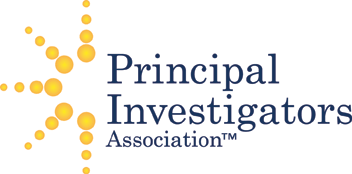| Did you know that NSF only approves about 28% of submitted applications. With thousands of applications to review, how can you ensure yours gets the reviewers’ attention? Give your grant application an edge by implementing the how-to advice found inside this NSF Funding Toolkit. This must-have information includes step-by-step guidance, best practices and grant strategies by NSF funding experts. Offer Extended! Now you can receive invaluable advice at the unbeatable price of just Order online, call 800-303-0129 ext. 506, or submit your form by fax or mail. |
|
| Your NSF Funding Toolkit Includes ALL of the following: |
60-Minute On-Demand Webinar: Building a Better NSF Proposal (a $197 value) All NSF proposals are evaluated using the two National Science Board (NSB)-approved merit review criteria: intellectual merit and the broader impacts. Proposers can have difficulty understanding how to frame their goals and activities in light of these criteria. Beyond this base requirement, the summary page helps to get the reviewers on your side. They most often turn first to the project summary page. It should clearly and briefly communicate and set the stage for what is to come. Key Webinar Take-Aways:
|
Special Report: How to Write a Winning NSF Proposal (PDF) (a $199 value) Like most other grantors, the NSF has specific instructions on how you should develop, write and submit your proposals. Perhaps the most important elements that the agency wants to see in your proposals are the merit-review criteria developed by the National Science Board (NSB). This executive report has been designed to help you better understand — and more successfully complete — the Project Summary, Intellectual Merit and Broader Impact portions of your NSF grant proposal. Inside this 35-pg. report you will gain how-to advice and insider tactics on:
|
60-Minute On-Demand Webinar: Prepare a More Competitive Major Research Instrumentation Grant (a $197 value) When you’re talking BIG BUCKS — like Major Research Instrumentation Grants — you need every improvement that you can get. Make sure you understand the unique aspects of NSF’s complex MRI application and get the advice you need to respond successfully to keep your proposal competitive. Without this expert advice for addressing the key differences of an MRI grant, your application’s success could be in jeopardy. Key Webinar Take-Aways:
|
Special Report: MRI Grant Program: Expert Tips & Tricks to Nab Expensive Instrumentation (PDF) (a $129 value) The Major Research Instrumentation (MRI) grant program is perhaps one of the most specific funding The MRI program has become increasingly competitive. While proposal success rates in 2010 hovered around 30 percent, the rate for 2011 was just Must-have, step-by-step expert guidance inside this 23-pg. report includes:
Order this report only for
|
60-Minute On-Demand Webinar: NSF Criteria: Successfully Communicating Broader Impacts (a $197 value) When you submit a proposal to the National Science Foundation, reviewers evaluate it using two criteria that all proposals must clearly address. The first is “Intellectual Merit,” which most researchers have little difficulty substantiating. However, the second criterion —requiring PIs to frame the broader impacts of the proposed research—has proven to be problematic for many. This Webinar will empower you with step-by-step tools to successfully identify, distill and communicate your project’s broader impacts to the NSF reviewers, improving your funding chances. 5 Key Take-Aways:
|
Special Report: Communicate Your Broader Impacts Successfully (PDF or Print) (a $129 value) The concept of “broader impacts” is tricky for most researchers to understand — much less communicate it effectively in their NSF grant proposals. The agency even admits that broader impacts is a tough concept for researchers. “Experience shows that while most proposers have little difficulty responding to the criterion relating to intellectual merit, many proposers have difficulty understanding how to frame the broader impacts of the activities they propose to undertake.” Mainly, the concept of broader impacts has different meanings for different people and disciplines, experts say. Although intellectual merit has always been at the heart of research, integrating broader impacts is much more of a cultural shift. Must-have, step-by-step expert guidance in this 14-pg. report includes:
|
|
100% Satisfaction Guaranteed.
These informational products are brought to you as training tools by the Principal Investigators Association, which is an
independent organization. The items presented and their contents are not connected with the National Institutes of Health (NIH)
or the National Science Foundation (NSF), nor are they endorsed by these agencies. All views expressed
are those personally held by the presenter and are not official government policies or opinions.





